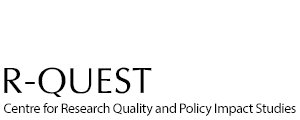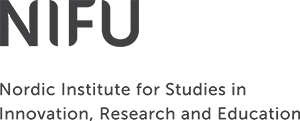Research groups and organisations
A general trend towards increased autonomy of universities and rising expectations to organizational performance from governments and stakeholders can be observed across countries (Edler et al 2012). However, although research institutions often operate within similar framework conditions, their internal policies, career systems and allocation of resources may differ substantially – both between and within countries (Nedeva et al 2014; Langfeldt et al 2010;Paradeise et al 2009). This calls for an enhanced understanding of the organizational and institutional conditions of the research groups/organisations – how they are affected by policy and
governance mechanisms and how their priorities and strategies affect the organization of research and research performance (Borlaug 2015). Furthermore, if funding instruments have relatively little impact on research performance (Langfeldt et al 2015) there is a need to gain a better understanding of the organizational and institutional conditions that thrive quality. These conditions include (but are not limited to) academic leadership; types of funding; research groups; mobility; incentive systems; doctoral training; collaboration with societal and industrial actors and the role of academic norms and practices. Additionally important are the conditions for interdisciplinarity and the emergence of new scientific fields.
The framework of the R-Quest allows the possibility to perform in-depth comparative crosscountry case studies in Norway, Sweden, Denmark, Netherlands and the UK. We suggest two sets of interlinked case studies: One involves the study of different research organizations (herein universities, research institutes and university hospitals) in the respective countries to investigate the governance of the research organizations, their strategic capabilities and their mechanisms for
fostering research quality. This will provide a basis for the other case study which targets research groups. To investigate their organizational and institutional conditions we suggest performing a systematic study by selecting research groups, both ‘high quality’ and control groups, representing
similar scientific fields in each country. Both conditions and the impact of the research organizations’ priorities and governance mechanisms may vary between scientific fields an sectors, and it is as such important to achieve a broad and nuanced understanding of different quality cultures in order to develop targeted and good policy and instruments.
The research in strand 2a will have great importance for contextualising and analysing the findings. While case studies are proposed as the main methodology, the analyses will be based on a triangulation of data – using document studies, interviews and data from the survey and other key sources as bibliometrics and funding data.

